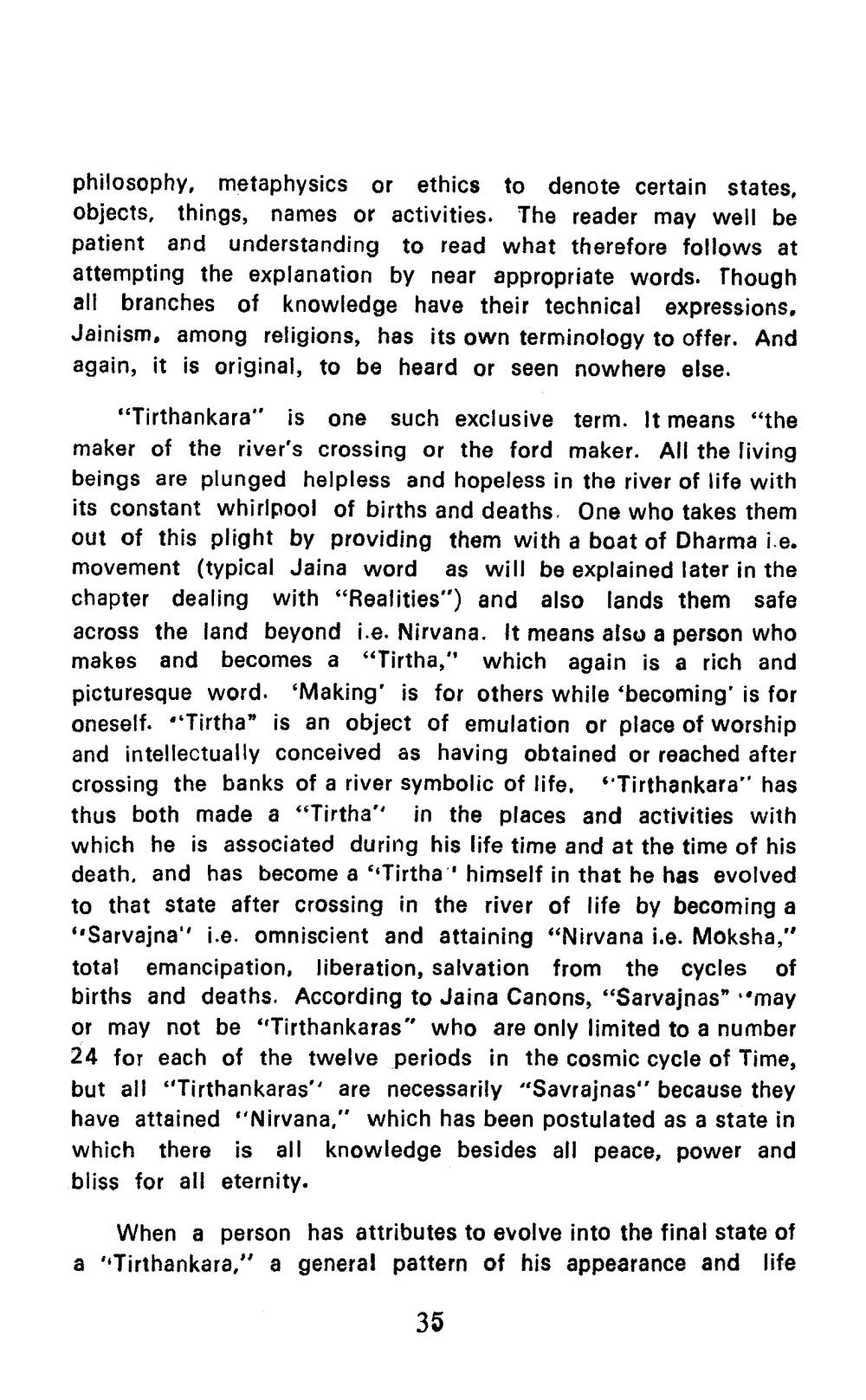________________
philosophy, metaphysics or ethics to denote certain states, objects, things, names or activities. The reader may well be patient and understanding to read what therefore follows at attempting the explanation by near appropriate words. Though all branches of knowledge have their technical expressions, Jainism, among religions, has its own terminology to offer. And again, it is original, to be heard or seen nowhere else.
"Tirthankara" is one such exclusive term. It means “the maker of the river's crossing or the ford maker. All the living beings are plunged helpless and hopeless in the river of life with its constant whirlpool of births and deaths. One who takes them out of this plight by providing them with a boat of Dharma i.e. movement (typical Jaina word as will be explained later in the chapter dealing with “Realities") and also lands them safe across the land beyond i.e. Nirvana. It means also a person who makes and becomes a “Tirtha," which again is a rich and picturesque word. "Making' is for others while becoming' is for oneself. “Tirtha" is an object of emulation or place of worship and intellectually conceived as having obtained or reached after crossing the banks of a river symbolic of life. “Tirthankara" has thus both made a “Tirtha" in the places and activities with which he is associated during his life time and at the time of his death, and has become a "Tirtha'' himself in that he has evolved to that state after crossing in the river of life by becoming a "Sarvajna'' i.e. omniscient and attaining “Nirvana i.e. Moksha," total emancipation, liberation, salvation from the cycles of births and deaths. According to Jaina Canons, "Sarvajnas" may or may not be "Tirthankaras" who are only limited to a number 24 for each of the twelve periods in the cosmic cycle of Time, but all "Tirthankaras'' are necessarily "Savrajnas" because they have attained "Nirvana," which has been postulated as a state in which there is all knowledge besides all peace, power and bliss for all eternity.
When a person has attributes to evolve into the final state of a "Tirthankara," a general pattern of his appearance and life
35




